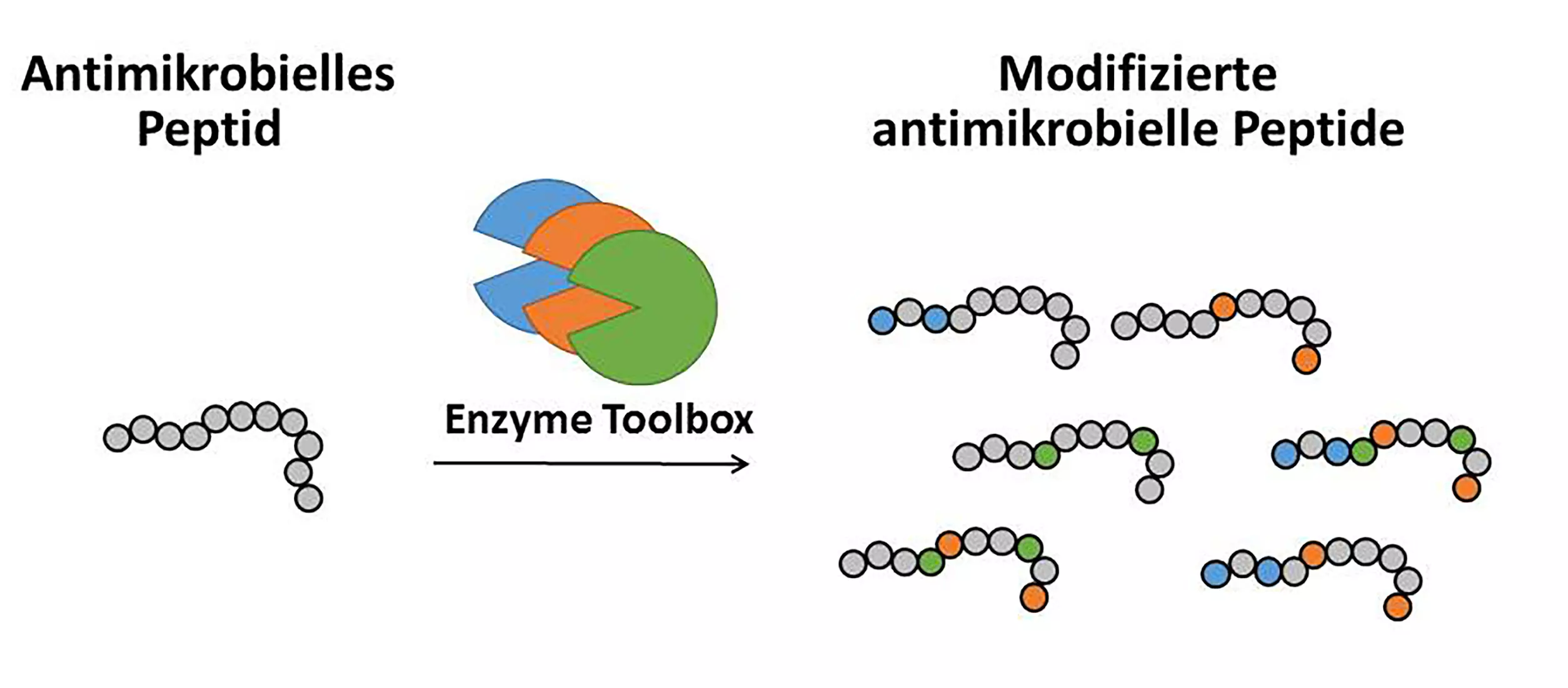New approaches to antibiotic resistance
Multi-resistant pathogens have constantly developed and spread over the past few years. The reason for this lies in the increased use of antibiotics in humans and animals, as well as in the premature termination of antibiotic therapies. As a result, bacteria that have not been killed become more resistant and keep multiplying. Researchers from the ZHAW in Wädenswil and from the University of Bern initiated a project to search for a solution to this problem.
The discovery of antibiotics at the beginning of the 20th century was one of the most significant developments in the history of medicine. Antibiotics kill bacteria or inhibit their proliferation, so that most bacterial infectious diseases can be treated with them. But bacteria are survival specialists. Constant proliferation causes them to constantly change their genome, which can cause mutations. Consequently, the effects of certain antibiotics can be reduced or even eliminated. Antibiotic resistance has increased constantly over recent years. According to a study conducted by the European Centre for Disease Prevention and Control (ECDC), which was published in November 2018, about 33,000 people die every year from consequences of bacterial infections that can no longer be treated due to antibiotic resistance.
Developing compounds with antibiotic properties
«Without the development of new therapies, suffering and costs caused by multi-resistant bacteria will increase even more in the coming decades,» says Rebecca Buller, Head of the Centre for Biocatalysis and Process Technology at the ZHAW's Institute of Chemistry and Biotechnology in Wädenswil. Could peptides, organic-chemical compounds consisting of amino acids, contribute to the solution? According to Buller, the use of peptides is considered a promising approach to addressing the problem of antibiotic resistance in bacteria. But the rapid decomposition of peptides in the human body, caused for example by proteases, poses a major challenge for the use of therapeutic peptides in general. However, peptide modification can slow down the process of decomposition considerably. The research project thus focuses on developing an enzyme platform that allows peptides to be modified in such a way that their application can be optimised. Bioinformatic approaches will be used to identify the enzymes, and methods of directed evolution will be applied to diversify them. By using this biocatalytic toolbox, new peptide active ingredients should result, and these might then become effective against resistant bacterial strains.
Federal government supports research project for enzyme platform
Rebecca Buller and her team will develop the enzyme platform together with Rémy Bruggman from the Interfaculty Bioinformatics Unit (University of Bern) and Vincent Perreten from the Institute of Veterinary Bacteriology (also University of Bern). The research project has been made possible by the special joint programme entitled «Bridge», which has a total budget of CHF 70 million for the years 2017 to 2020 and is being funded by the Swiss National Science Foundation (SNSF) and the Swiss Innovation Agency Innosuisse. In 2018, twelve so-called «Discovery» research projects were approved. These aim to support experienced researchers who want to apply their research findings by developing products or services with innovation potential.
Rebecca Buller is delighted: «At the end of 2018, I received the federal government’s confirmation and now, preparations are in full swing. Since there were only three projects in which Universities of Applied Sciences were acting as project coordinators, we at the ZHAW are of course very proud of being one of them». The project, entitled «Microbial Epimerase: A toolbox for the synthesis of novel peptide-based drugs», is set to begin in June 2019. It will last three years and federal support amounts to approximately CHF 800,000.
Downloads
- Media release «Neue Lösungsansätze gegen Antibiotika-Resistenzen» (in German)(PDF 104,4 KB)
- Picture: Prof. Rebecca Buller, Head of Centre for Biocatalysis and Process Technology at the Institute of Chemistry and Biotechnology, project leader from the ZHAW
- Chart: Modified peptides against antibiotic resistance
Contact:
Prof. Dr. Rebecca Buller, Head of Center Biocatalysis and Processtechnology, Institute of Chemistry and Biotechnology, ZHAW-Departement Life Sciences and Facility Management, Wädenswil. 058 934 54 38, Rebecca.buller@zhaw.ch
Media Relations Wädenswil
Cornelia Sidler, Media Relations ZHAW-Departement Life Sciences and Facility Management, Wädenswil. 058 934 53 66, cornelia.sidler@zhaw.ch

